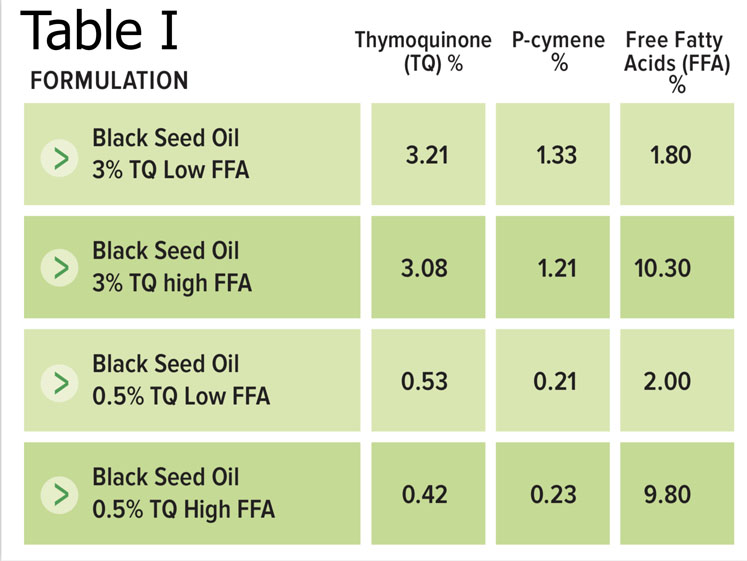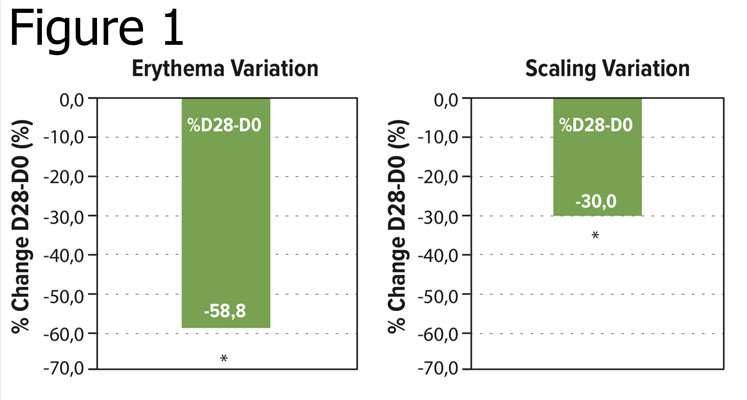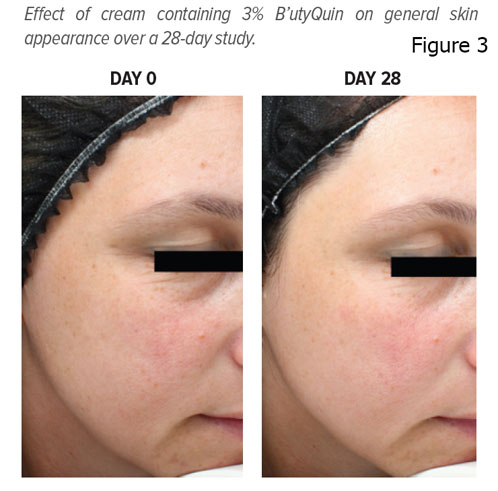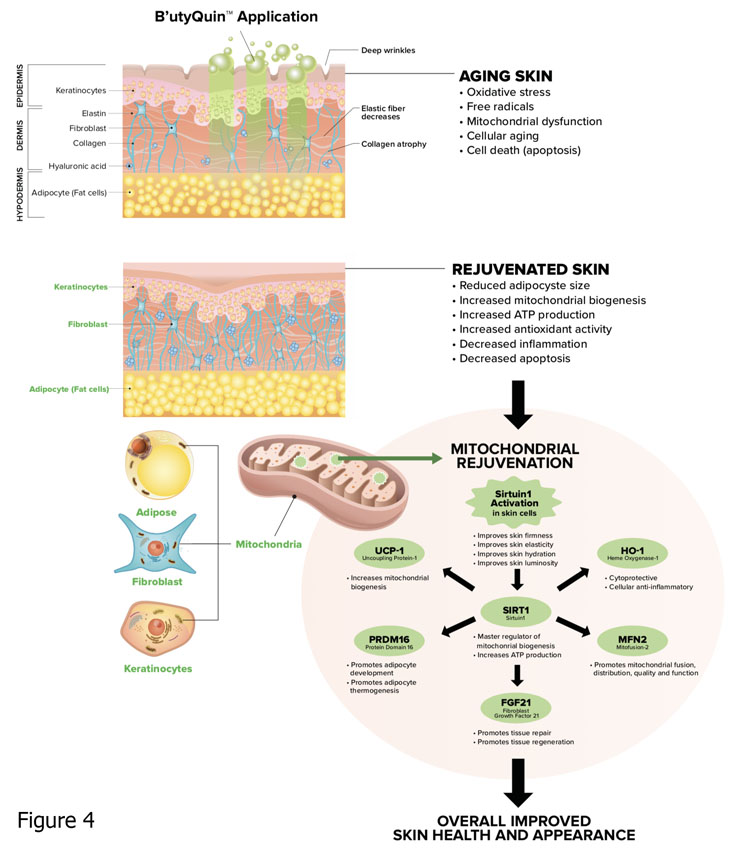Plants and botanicals have been used as healing and health remedies since ancient times, with today’s scientific research providing the proof behind the positive effects many of them deliver.
In particular, the annual flowering plant Nigella sativa, which is native to Southeast Europe and western Asia — including the Middle East and northern Africa — has garnered increased attention owing to its cosmetic uses and perceived benefits, such as improved nutrition and overall healthy ageing.
Deciphering the major chemical components of N. sativa, particularly the oil from its seeds, referred to as black seed oil (BSO), is the main reason for this interest in both the scientific community and the general public.1–5
Grandview Research reported that the global black seed market in 2021 was estimated to be worth $18.84 million and is expected to reach $29.43 million by 2028 (growing at a CAGR of 7.2%).6

N. sativa’s seeds are rich in fatty acids and several fixed and essential oils.7 The essential oil fraction contains a mixture of highly active compounds and, among these, the most active component is thymoquinone (TQ).
Many of the pharmacological properties of N. sativa oil are attributed to TQ, including antioxidant, anti-inflammatory, dermatologic, antimicrobial and antifungal benefits.8–11 And although this oil has demonstrated multiple health benefits, it’s important to understand that not all black seed oils are created equal.
BSO from the inside out
Sources report that N. sativa seeds have been used medicinally in the Middle East and Southeast Asia for more than 2000 years; the seeds have even been found in the tomb of Egyptian pharaohs.12,13

Today, preclinical, animal and clinical research has demonstrated N. sativa’s beneficial effects on immune function, blood pressure and cardiovascular function, blood sugar management, metabolic support and liver function.14–16
More recently, studies have shown that a proprietary black seed oil, ThymoQuin and B’utyQuin, can significantly boost mitochondrial functions expressed in ATP production (linked to efficient energy production) for skin rejuvenation, tightening and hydration.10
The patent-pending BSO has also demonstrated soothing and relieving components for scalp scaling, redness, itch and excessive skin oil, making it a sought-after product across the globe.11
Sorting out quality
With the black seed oil market on the rise, sourcing a quality extract for dietary supplement or topical cosmetic use is critical for the consumer experience. In vitro research on thymoquinone has demonstrated the importance of standardisation to achieve its full potential.

Generally, TQ content within black seeds can range from concentrations of 0.3–1.5%, with differences observed between the seed’s origins and extraction methods.11
N. sativa thrives in the Israeli climate and a special breeding programme has been developed to yield 2–3 times the TQ content than other varieties. Once the plant is ready to harvest, the BSO can be obtained using a solvent-based or cold press extraction, with the latter being the preferred method. This is because the use of
- solvents can affect the yield of various constituents
- heat can diminish the quality and composition of the oil.14–16

Starting with a high-concentration sample and using a cold-pressed extraction method allows consumers to get the full impact of this product.
One study compared the TQ content of four market-available BSO oils to determine the potency of their antimicrobial benefits. The study found that the oil containing 3% TQ and low levels (>2%) of free fatty acids (FFAs) showed the most potent antifungal properties (Table I).
This demonstrates that the higher TQ content and lower FFAs are the most significant factors that affect antibacterial and antimicrobial activity.11
These results were further ratified in a recent blinded, controlled, single-centre 28-day study with participants with mild-to-moderate scalp seborrhoea. After 28 days of applying a “Scalp Serum” that contained 5% B’utyQuin, the standardised and proprietary BSO from TriNutra, there was a statistically significant decrease in erythema scores (58.8%) and a significant decrease in scaling scores (30%) compared with the baseline (Figures 1 and 2).

The B’utyQuin serum also helped to reduce scalp oiliness scores by 16.7%.
A second study involving 3% B’utyQuin as a topical cream addressed ageing skin and improved hydration, elasticity, firmness and luminosity in a statistically significant fashion compared with the placebo cream after 28 days of use (Figure 3).
These results support the mechanisms related to mitochondrial function revitalisation expressed in ATP production, which is linked to efficient energy production, improved respiration and the metabolism of sugars and fat (Figure 4).10
The mounting dose-dependent research on black seed oil continues to demonstrate its positive health benefits and an aid to ageing both gracefully and healthfully as our lifespan increases.
References
- A. Ahmad, et al., “A Review on Therapeutic Potential of Nigella sativa: A Miracle Herb,” Asian Pac. J. Trop. Biomed. 3, 337–352 (2013).
- V.K. Babayan, D. Koottungal and G.A. Halaby, “Proximate Analysis, Fatty Acid and Amino Acid Composition of Nigella sativa L. Seeds,” J. Food Sci. 43, 1314–1315 (1978).
- M.S. Al-Jassir, “Chemical Composition and Microflora of Black Cumin (Nigella sativa L.) Seeds Growing in Saudi Arabia,” Food Chem. 45, 239–242 (1992).
- B. Nickavar, et al., “Chemical Composition of the Fixed and Volatile Oils of Nigella sativa L. from Iran,” Zeitschrift fur Naturforschung. C, J. Biosci. 58, 629–631 (2003).
- S. Cheikh-Rouhou, et al., “Nigella sativa L.: Chemical Composition and Physicochemical Characteristics of Lipid Fraction,” Food Chem. 101, 673–681 (2007).
- www.grandviewresearch.com/industry-analysis/black-seed-oil-market-report#:~:text=b.-,The%20global%20black%20seed%20oil%20market%20size%20was%20estimated%20at,USD%2018.8%20million%20in%202021.
- B. Amin and H. Hosseinzadeh, “Black Cumin (Nigella sativa) and its Active Constituent, Thymoquinone: An Overview on the Analgesic and Anti-inflammatory Effects,” Planta Med. 82, 8–16 (2016).
- M.F. Ramadan, “Nutritional Value, Functional Properties and Nutraceutical Applications of Black Cumin (Nigella sativa L.): An overview,” Int. J. Food Sci. Technol. 42, 1208–1218 (2007).
- C. Sarkar, et al., “Therapeutic Perspectives of the Black Cumin Component Thymoquinone: A Review,” Food Funct. 12, 6167–6213 (2021).
- www.sofw.com/de/sofw-journal/articles-de/43-personal-care/3111-gereizte-juckende-schuppige-seborrhoische-kopfhaut-ursachen-und-abhilfe-mit-einem-proprietaeren-kaltgepressten-oel-nigella-sativa-schwarzkuemmel-standardisiert-auf-3-thymoquinone.
- www.sofw.com/en/sofw-journal/articles-en/48-personal-care/3101-irritated-itchy-scaly-seborrheic-scalp-causes-and-relief-with-a-proprietary-cold-pressed-nigella-sativa-black-seed-oil-standardized-to-3-thymoquinone.
- A.G. Heiss, et al., “Nigella in the Mirror of Time: A Brief Attempt to Draw a Genus’ Ethnohistorical Portrait,” Offa-Zeitschrift Berichte und Mitteilungen zur Urgeschichte Frubgeschichte und Mittelalteraarchaologie (2012): doi: 10.13140/2.1.3918.3364.
- R. Germer, Handbuch der altägyptischen Heilpflanzen (Otto Harrassowitz GmbH & Co. KG, Wiesbad, Germany, 2008).
- H. Xu, et al., “Computational and Experimental Studies Reveal That Thymoquinone Blocks the Entry of Coronaviruses Into In Vitro Cells,” Infect. Dis. Ther. 10, 483–494 (2021).
- B. Bush, et al., “Effects of Standardized Black Seed Oil Cold Press Supplement Over A Six Week Period on Blood Pressure and Heart Rate in Healthy Patients: A Nonrandomized Clinical Trial,” Food Science & Nutrition Research 3(1), 1–5 (2020).
- M. Licari, et al., “Beneficial Effects of Thymoquinone on Metabolic Function and Fatty Liver in the Murine Model of Obesity,” Journal of Nutrition & Food Science 9(1), 751 (2019).
- M.J.H. Akanda, et al., “Applications of Supercritical Fluid Extraction (SFE) of Palm Oil and Oil from Natural Sources,” Molecules 17(2), 1764–1794 (2012).
- Z. Solati, et al., “Antioxidant Property, Thymoquinone Content and Chemical Characteristics of Different Extracts from Nigella sativa L. Seeds,” J. Am. Oil Chem. Soc. 91, 295–300 (2014).
- M. Kiralan, et al., “Physicochemical Properties and Stability of Black Cumin (Nigella sativa) Seed Oil as Affected by Different Extraction Methods,” Industrial Crops and Products 57, 52–58 (2014).
